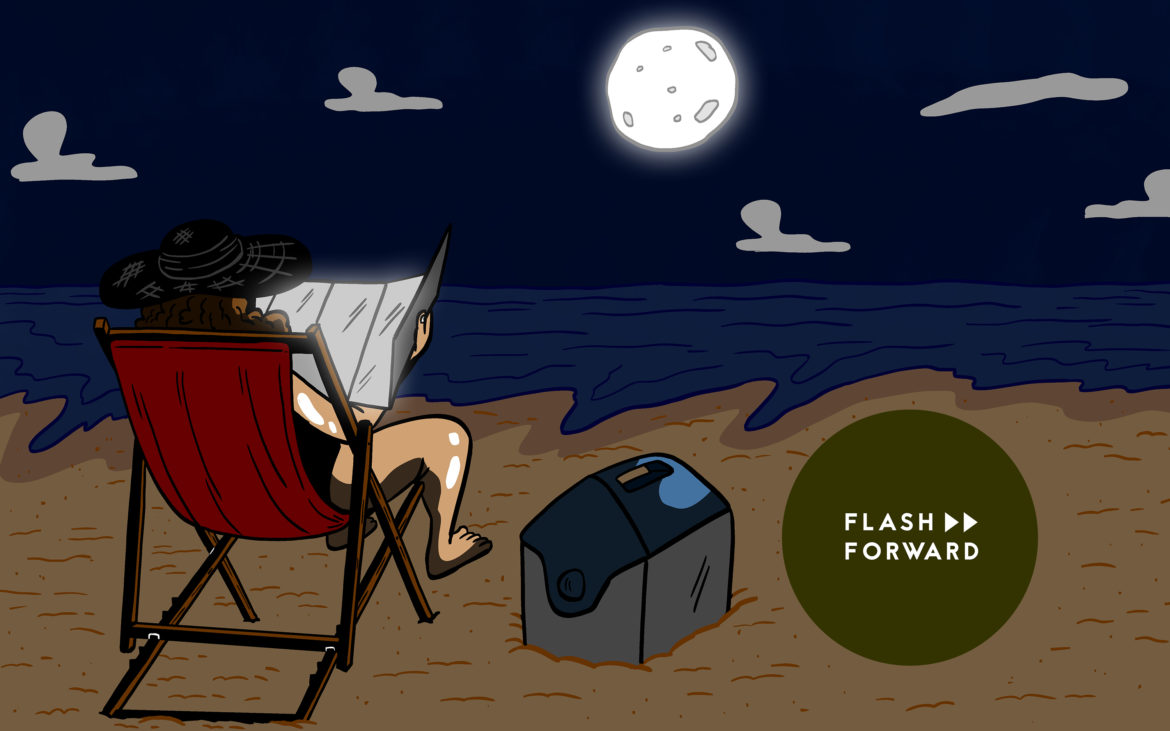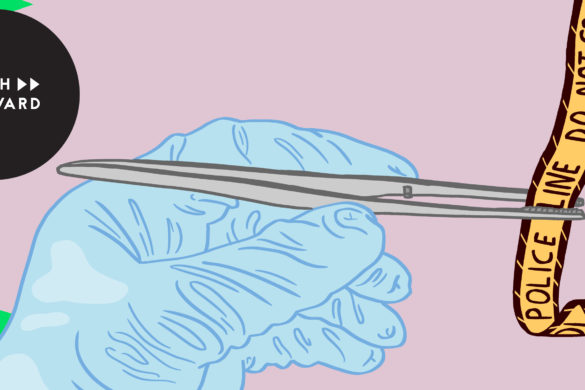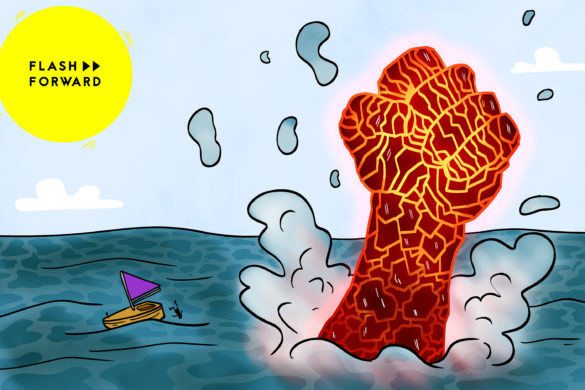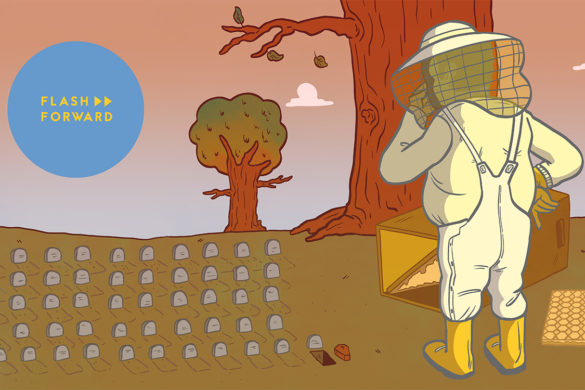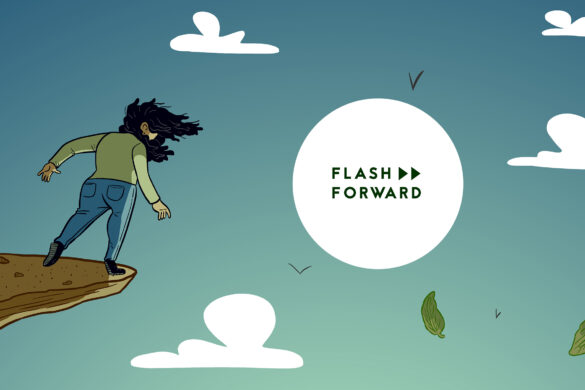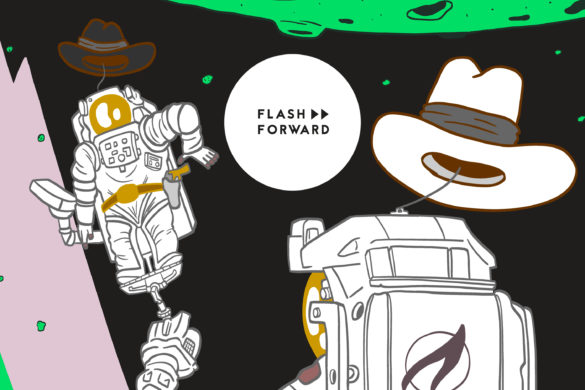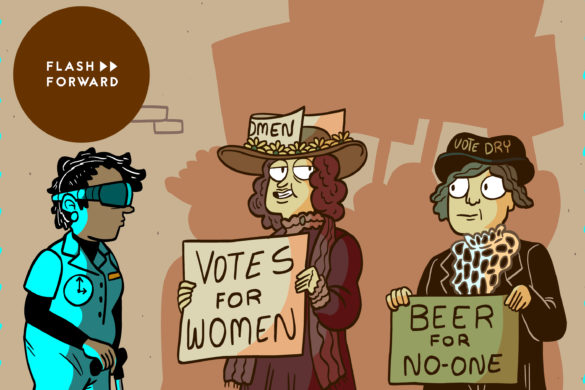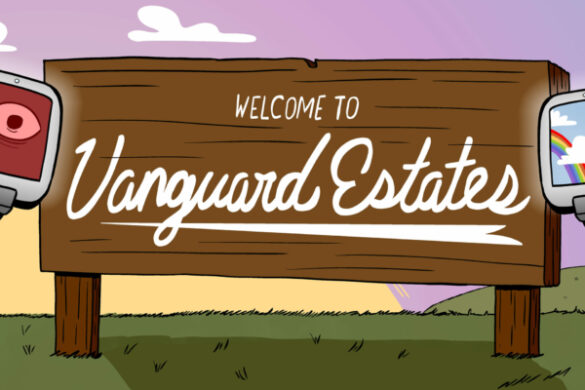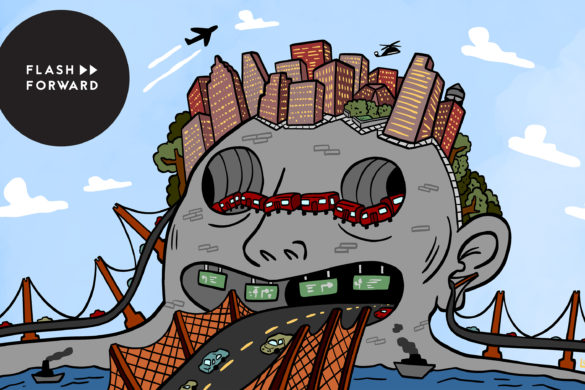Today’s episode is about a future where humans get weird with sleep. First, what if we tried to take shifts all day, every day? Second, what if we tried to become nocturnal?
Guests:
- Dr. Matthew Wolf-Meyer, an associate professor of anthropology at Binghamton University and author of The Slumbering Masses: Sleep, Medicine, and Modern American Life.
- Sarah Kaplan, a science reporter at the Washington Post who’s worked the night shift.
- Dr. Bala Koritala, a researcher at Cincinnati Children’s Hospital Medical Center.
- Alexandra Mariani, a listener who works the night shift at a hospital.
- Kelton Minor, a PhD student at the University of Copenhagen Center for Social Data Science.
- Dr. Kaitlyn Gaynor, a researcher at the National Center for Ecological Analysis and Synthesis.
Voice Actors:
Further Reading:
- What’s So Natural About Sleep?
- Busting the 8-Hour Sleep Myth: Why You Should Wake Up in the Night
- Segmented Sleep in Preindustrial Societies
- What a year of working the graveyard shift taught me about sleep
- Carcinogenicity of night shift work
- Research offers insights on how night shift work increases cancer risk
- The risks of night work
- A Demographic Profile of U.S. Workers Around the Clock
- Trucking 101: The Night Shift
- 24/7: Late Capitalism and the Ends of Sleep
- Ambient heat and human sleep
- More than one-third of heat deaths blamed on climate change
- AC/DC: Unequal Access to Air Conditioning
- The air conditioning trap: how cold air is heating the world
- Historic heat wave linked to hundreds of deaths in Pacific Northwest and Canada
- Early mammals were creatures of the night
- The influence of human disturbance on wildlife nocturnality
- Scientists show impact of human activity on bird species
- Are Humans to Blame for the Disappearance of Earth’s Fantastic Beasts?
- Mammals and birds could have best shot at surviving climate change
Episode Sponsors:
- REALM: Part podcast studio, part magical refuge. One of their most recent series is Spider King. After taking the rap for a crime he didn’t commit, an incarcerated Black man makes a dangerous bargain to earn his freedom. For fans of Jordan Peele and Lovecraft Country, this poignant and intimate body-horror narrative eviscerates the prison industrial complex while exploring the traumas that arise as a result of it.
- Shaker & Spoon: A subscription cocktail service that helps you learn how to make hand-crafted cocktails right at home. Get $20 off your first box at shakerandspoon.com/ffwd.
- Tab for a Cause: A browser extension that lets you raise money for charity while doing your thing online. Whenever you open a new tab, you’ll see a beautiful photo and a small ad. Part of that ad money goes toward a charity of your choice! Join team Advice For And From The future by signing up at tabforacause.org/flashforward.
- Tavour: Tavour is THE app for fans of beer, craft brews, and trying new and exciting labels. You sign up in the app and can choose the beers you’re interested in (including two new ones DAILY) adding to your own personalized crate. Use code: flashforward for $10 off after your first order of $25 or more.
- Purple Carrot: Purple Carrot is THE plant-based subscription meal kit that makes it easy to cook irresistible meals to fuel your body. Each week, choose from an expansive and delicious menu of dinners, lunches, breakfasts, and snacks! Get $30 off your first box by going to www.purplecarrot.com and entering code FLASH at checkout today! Purple Carrot, the easiest way to eat more plants!
More about ads and data privacy on Flash Forward here (scroll to the bottom).
Flash Forward is hosted by Rose Eveleth and produced by Julia Llinas Goodman. The intro music is by Asura and the outtro music is by Hussalonia. The episode art is by Matt Lubchansky. The voices from the future this episode were provided by
If you want to suggest a future we should take on, send us a note on Twitter, Facebook or by email at info@flashforwardpod.com. We love hearing your ideas! And if you think you’ve spotted one of the little references I’ve hidden in the episode, email us there too. If you’re right, I’ll send you something cool.
And if you want to support the show, there are a few ways you can do that too! Head to www.flashforwardpod.com/support for more about how to give. But if that’s not in the cards for you, you can head to iTunes and leave us a nice review or just tell your friends about us. Those things really do help.
That’s all for this future, come back next time and we’ll travel to a new one.
FULL TRANSCRIPT BELOW
transcripts by Emily White at The Wordary
▹▹ ▹▹ ▹▹ ▹▹ ▹▹ ▹▹ ▹▹ ▹▹ ▹▹ ▹▹ ▹▹ ▹▹ ▹▹ ▹▹ ▹▹ ▹▹ ▹▹ ▹▹ ▹▹ ▹▹ ▹▹ ▹▹ ▹▹
FLASH FORWARD
S7E08 – “Could Humans Become Nocturnal?”
[Flash Forward intro music – “Whispering Through” by Asura, an electronic, rhythm-heavy piece]
ROSE EVELETH:
Hello and welcome to Flash Forward! I’m Rose and I’m your host. Flash Forward is a show about the future. Every episode we take on a specific possible… or sometimes not-quite-so-possible future scenario. We always start every episode with a little field trip into the future to check out what is going on, and then we teleport back to today to talk to experts about how the world that we just heard might actually go down. Got it? Great!
This episode we are starting in the year 2044.
[music fades out and ambient outdoor night sounds begin]
And we’re actually going to do this episode a little bit differently. Today, we are tackling two different futures, both centered around nighttime. What if humans tried to become nocturnal? Or, what if we tried to do the opposite and really run a fully 24/7 society? What might drive us to adopt the night? And what would happen if future children were born into it? Could we all take shifts throughout a 24-hour day? Or would that drive us off a collective cliff?
So, join me as we enter two versions of NightWorld.
[night sounds fade out]
FICTION SKETCH BEGINS
[alarm beeps]
[someone gets out of bed, starts making coffee]
[a door opens, keys jingling]
CAT:
Morning, Sunshine.
MARIO:
How was work?
CAT:
Nothing super exciting to report. Nancy forgot she was on shift so we were a person down, but it was pretty quiet.
MARIO:
Didn’t Nancy forget last shift too?
CAT:
Yeah, but she has a lot going on at home. I can’t really blame her. I think it takes some people a lot more getting used to.
MARIO:
(annoyed) Still, it makes things harder for everybody who does shift.
CAT:
Nancy will be there tomorrow. It’s fine.
MARIO:
Oh speaking of… Remember that Luna’s school is starting to shift next week. So you’re in charge of lunches, and drop off, and stuff.
CAT:
Oh, shoot. Are they really already making them do that?
MARIO:
Yeah, the school sent around a big packet of info about it, remember?
CAT:
I thought they started next year?
MARIO:
Nope.
CAT:
They seem kinda young to try and shift? Doesn’t it mess up kids’ brains to shift their sleep schedules like that?
MARIO:
It messes up adult brains too, you know.
CAT:
Yeah, but we get paid. We have to shift to keep everything running.
MARIO:
And they will too, eventually. The idea, I guess, is that this helps them get used to it more.
CAT:
Okay, so remind me what packing lunch entails?
MARIO:
I made you a list.
CAT:
Prepared, as always.
[pouring and drinking coffee]
CAT:
So, when are we back on the same shift?
MARIO:
I think in a month or so.
CAT:
Should we try to plan a date night?
MARIO:
Yeah. Want to see if Roberto’s is gonna be open?
CAT:
Yeah, or maybe Vik’s if they’re not open.
MARIO:
That sounds good.
Oh shoot, I’m gonna be late. Gotta go. Sleep tight! See you later.
[door opens and closes]
[door opens and closes]
FICTION SKETCH END
ROSE:
So, let’s start with the world that we are already inching towards: 24/7, 365, all work, all the time. By which I mean, nothing ever closes. Everything stays open all the time. Every industry operates all day, no matter what. In order to make that happen, we would all have to change our work schedules and take shifts.
Today, according to the Bureau of Labor Statistics, about 4% of Americans work only night shifts, and another 12% more work evenings or switch around between shifts. Tons of industries rely on night shift workers, from hospitals, to shipping, to emergency response, to customer service.
But of course, the night shift is a relatively new thing in the history of human work. We didn’t always have a 24/7 world where things were open throughout the night.
MATTHEW WOLF-MEYER:
You’re basically talking about sleep before 1790, and especially before, like, 1840. So, there’s a big transition in sleep, particularly in the North Atlantic region.
ROSE:
This is Dr. Matthew Wolf-Meyer, an Associate Professor of Anthropology at Binghamton University and the author of a book called The Slumbering Masses: Sleep, Medicine, and Modern American Life.
MATTHEW:
So, between Western Europe and North America, there’s a big shift in sleep between the late 1700s and the mid-1800s, and that has everything to do with industrial labor.
ROSE:
There’s actually a really interesting debate and mystery around what constitutes “natural” sleep for humans. I’m going to talk a lot more about that on the bonus podcast this week, but the short version is that nobody really knows how humans would “naturally” sleep if we didn’t live in this modern world. There are clues here and there, but no definitive proof of one, true sleep cycle untainted by the modern era. But what does seem to be true is that we did not always sleep in one, solid, uninterrupted chunk.
MATTHEW:
Cross-culturally, there’s a bunch of evidence that people are sleeping biphasically. In pastoral societies or hunter-gatherer societies in the global south, particularly in Africa but also parts of Asia and Central America, lots of communities are organized around taking a nap in the middle of the day, staying up pretty late, and then sleeping for a short period in the middle of the night, and then waking up early.
When you think aboutit, I mean, it’s kind of the siesta culture, right? But it makes a lot of sense to be active when it’s cool and less active when it’s really hot. So if you can sleep in the middle of the day when it’s hottest, you can organize your labor in periods when it’s not quite so hot. So I mean, if you take that all together, it’s pretty clear that humans are flexible enough, or plastic enough, to sleep in non-consolidated kinds of ways.
ROSE:
It wasn’t until the industrial revolution that sleep became this singular, unified, once-a-night kind of thing.
MATTHEW:
The industrial workday starts as a kind of dawn-to-dusk workday, and that’s because, again, there’s no electric lighting and old factories are all windows to get in as much light as you can possibly get in. They want people to work as much as they can possibly work. And you know, that means dawn to dusk and that people would go home, they’d collapse because they were exhausted and their sleep would become more consolidated as a result.
ROSE:
Today, we accept this as basically normal, right? You have certainly heard advice about how you should be getting 7-10 hours of sleep every night, right? And the assumption is that it should all be at once. And in fact, this consolidated sleep schedule has become so normalized that if you have trouble doing it, you are considered a “disordered sleeper.”
Matthew’s book talks about the ways in which the West in particular got obsessed with the idea of maximizing sleep in the name of productivity.
MATTHEW:
They thought that taking multiple periods of rest over the course of the day was an inefficient way to sleep and if we can just cram it into one eight-hour period you’ll get everything that you need without all of this other hullabaloo around it.
ROSE:
But even if we don’t totally know what specific sleep schedule is the “best” one or the “most natural one,” we do know that certain kinds of sleep schedules are bad for us, including working the night shift.
Here’s Sarah Kaplan, a reporter at the Washington Post who worked the night shift for a year and got interested in the ways it was potentially messing with her body and mind.
SARAH KAPLAN:
There are, like, really concerning long-term health effects of working the night shift. Studies of nurses who are shift workers for their whole careers often have shown that it puts you at risk of diabetes and cardiovascular disease. The World Health Organization actually considers shiftwork a carcinogen. And so, for people who have to do this their whole careers, whether they’re nurses, or truck drivers, or nighttime custodians, or security guards, there are serious public health concerns for them.
DR. BALA KORITALA:
It is involved in the prognosis of several health disorders. Cancer, dementia, Alzheimer’s, Parkinson’s disease, and diabetes; all these diseases are associated with the circadian rhythms.
ROSE:
That’s Dr. Bala Koritala, a researcher who studies chronobiology at Cincinnati Children’s Hospital Medical Center. And some of his research is about trying to figure out exactly why the night shift has these effects on people.
BALA:
What we did is we recruited healthy individuals and we kept them in a sleep laboratory under dayshift condition, under simulated night shift condition. More than three days, actually, we kept them under simulated dayshift and night shift conditions.
ROSE:
To keep participants awake and to control for as many factors as possible, they gave people identical snacks every hour and kept them in a room with the lights always on. And when they took blood tests from these participants and looked at what might be going on, they found that in the simulated night shift workers, a specific part of the genome was impacted.
BALA:
Night Shift workers have DNA repair mechanisms dysregulated. And we measured the DNA damage in both day shift work and night shift work. We observed that night shift workers have increased DNA damage. If the person who has increased DNA damage… Basically, they have a high risk of cancer.
ROSE:
So in the simulated night shift workers, the part of the genome that helps tidy up and repair any damage that might be done to the DNA isn’t working properly. And damage to the DNA can often lead to big problems like cancer.
But long before you have to worry about cancer, night shift work does a real number on everything from concentration, to mood, to memory.
SARAH:
I had a friend who… I started hanging out with him while I was on the night shift, and then I’d been off the night shift for maybe, like, six months. And he was like, “You’re a lot nicer than I realized.” (laughs) Because I guess I’d just been, like, really cranky and, you know, not particularly nice during that time, for which I apologize to everyone I interacted with.
ROSE:
Not only was she grouchy, but her body was also unhappy.
SARAH:
So I started exhibiting a lot of signs of stress. My cognitive abilities were affected. I was forgetting a lot of stuff. I also started having hair fall out, which was, you know, not ideal.
ROSE:
Shift work is associated with mental fatigue and cognitive decline, which isn’t great when you’re, say, a journalist on the job. But it’s really bad when you start to talk about, for example, paramedics or doctors.
SARAH:
And there’s actually a lot of research that shows that, like, disasters are often linked to shift work, like the Three Mile Island nuclear meltdown happened between 4-6am. And part of the analysis of what went wrong was that there was mechanical failure, but then the shift workers who had been sleep deprived didn’t recognize the signs that they should have. So it was partly mechanical, but partly also human error. And they’ve looked at that for, like, Chernobyl, and Exxon Valdez, and all these other disasters.
ROSE:
And in fact, this episode was inspired by another night shift worker who has similar stories.
ALEXANDRA MARIANI:
My name is Alexandra Mariani. I’m a registered nurse working inpatient oncology and bone marrow transplant right now. I work at a moderately sized hospital in downtown Seattle.
ROSE:
Alexandra works 12-hour shifts three or four times a week, starting at 7pm and going to 7:30am the next morning.
ALEXANDRA:
I feel like I start to hit a wall around the five or six-month mark of being on nights where, like, I just start, like, just not sleeping well at all and I get a migraine, like, every day. And of course, it’s a lot harder to coordinate social life. My partner is a tech worker so she has a very standard schedule, which means that having any kind of an alternative schedule just makes things a lot harder. And then there’s also just that niggling knowledge in the back of my mind of “This is literally killing you.”
ROSE:
And it is not lost on Alexandra the irony of working in a cancer ward while working hours that are linked to cancer.
ALEXANDRA:
One night I was chatting with a patient, and different patients you can kind of be more real with than others, of course. And we were having a very real talk about, you know, cancer and about working. And I mentioned, “Oh, yeah. You know, even working night shift is a carcinogen. There’s carcinogens everywhere.”
And she, like, freaked out. She’s like, “You have to quit your job!” And I’m like, “Oh! Oh god!” And then I was just like, “It’s okay. I’m not planning on doing this forever. I have long-term plans.” Like, “You’re correct. This is really shitty. But also, right now, unfortunately, your life depends on me being here. So just go to sleep. Shh.” (laughs)
ROSE:
Like most things, the risk factors associated with shift work aren’t evenly distributed. Folks who live below the poverty line are about twice as likely to start work in the late afternoon or evening, the time that many other people are getting home from work or school. Night Shift workers also tend to have lower education levels and get paid less. Rural workers who don’t live near big cities are also more likely to work the night shift.
There are also racial inequities involved here. Black and Latine employees are disproportionately likely to have shifts that start in the middle of the night, between midnight and 6am.
SARAH:
And that was one of the recommendations also that I got from the health experts that I talked to about, like, how do you mitigate all of these health risks associated with shift work? And the suggestions are, like, reduce your other risks, right? So, like, eat well, don’t smoke, try to have good sleep hygiene, reduce stress. But you think about if someone is low income or a person of color who is dealing with racism, you know, potentially dealing with environmental racism. And so there’s hazards from their environment around them, like they have these various different sources of bad health compounding each other and piling on top of each other.
ROSE:
Research also suggests that if you can actually stick to a consistent night schedule, then you’re not going to have as hard of a time than if you try and do some night shift and then switch back to a daytime schedule for, say, the weekends. But that’s easier said than done, right? Sarah says she would pull really weird hours on Fridays and Saturdays so that she could still see her friends.
SARAH:
And I did that because it’s really difficult to have a social life when you’re keeping these weird hours. And also, like, my body missed the sun. I just, you know, wanted to have one normal day out of the week. It was what I needed to do for my mental health.
ROSE:
People want to see their kids, and get dinner with their families, and go to the baseball game, and live life when things are open and other people are active.
But both Sarah and Alexandra said that there were upsides to working the night shift. It’s often quieter, a little bit less stressful, and there is something kind of cool about moving around the world when everybody else is asleep.
ALEXANDRA:
I have a complicated relationship with it. There are elements of it that are nice. I am fortunate to work at a place that has a pretty nice differential that we get. So, I get $4.50 an hour more when I work nights, which adds up quite a bit over the course of a month. It’s something like $500-600 more a month, roughly, which adds up to a lot.
And it’s typically quieter. There’s way fewer staff there, which is kind of a good thing and a bad thing depending on your frame of mind. I feel like I have more time sometimes to get into the nitty-gritty of my job. And when I’m able to spend time talking to my patients… Obviously, ideally, they’re sleeping most of the night, but when I do have conversations with them, it’s always about, like, deep stuff. You never talk about the weather at 2am.
ROSE:
But what if we really leaned into this idea of a 24/7 society? There’s a book that I really like by Jonathan Crary called 24/7 that talks about the ways in which our biological need for sleep is one of the few speed bumps on the path to late-stage capitalism. And there is a chapter in the Flash Forward book about what would happen if we didn’t need to sleep. And what would happen, as imagined by Mattie Lubchanksy, is that we would be asked to work– all the time.
We talked about this a little bit on the housing guarantee episode, but it’s already really hard to afford a place to live on a single, minimum wage job. About 13 million workers in the US hold more than one job already. If we lived in this world where we were all picking up night and day shifts to keep industries going more and more, it would mean a lot more conversations about the health risks that we’ve already talked about on this episode.
And Bala actually suggested something kind of dystopian-sounding to try and reduce some of these risks. Some people seem to be more likely than others to have this shift work sleep schedule impact their DNA repair mechanism. So maybe, in this future world, you could screen for that and assign people night shifts who are more resilient against those genetic impacts, or pull people off the night shift if you see some of those impacts ramping up.
BALA:
If we have these kinds of biomarkers which are helpful to predict that increased health risk with these night shift workers, take those markers and test in companies where people are doing a night shift. And if, suppose they have some kind of a hint that the genes are circadianly dysregulated, maybe they can use their markers to suggest, like, “Okay, take this person out from the night shift work conditions and keep this person sometime in the day shift for him to recover.” That is actually one possible way to do it.
ROSE:
On a much smaller note, we would all probably have to shift to using military time, because otherwise, saying “four o’clock” would be very confusing. Families would have to figure out how to best sync up their schedules, and you might even wind up changing your friend group based on who you’re on the same shift with. Public transportation would have to change to make sure everybody could get places on time in the middle of the night. And, I mean, it’s probably pretty obvious, but nearly doubling the amount of work and industry that happens every 24-hour period would probably be bad for the climate.
Going to a full 24/7, everybody-takes-shifts society is obviously a little bit out there. Even if it might seem today like we live in this nonstop, all-hours world, it’s not really true.
MATTHEW:
Even places like New York City, and Los Angeles, and Tokyo aren’t really 24-hour, seven-days-a-week cities. There are services that you have a hard time getting in the middle of the night. A bunch of places close.
ROSE:
But at the same time, today, we do take for granted the idea that we need night shift workers, that some industries must run 24/7, and that to do so we have to sacrifice certain people’s health to make that happen. But does that have to be the case?
ALEXANDRA:
I guess, the biggest thing that I wonder about is, like, how could we make our society need it less, and to a greater extent, need those undesirable jobs less? And I know that there are certain areas where it would require a complete paradigm shift because, like, you can’t run an ICU if it’s not 24/7 right now. But is there a way that we could run that differently? To what extent could things be automated in a way that’s better? I don’t know.
MATTHEW:
Underneath the question, I think, is really the concern around productivism, this idea that everything we do needs to be valuable in a capitalist society. And on some level, that’s just the structure of capitalism in the sense that it is an ideology. It has totally captured our imaginations in ways that, even when we’re resting, we’re thinking about the benefits of that rest for the work that it will allow us to do in the future.
So, really, I think working outside of productivism means articulating, like, a politics of refusal, that there are certain kinds of things for individuals, for communities, that we are going to stake claims to not being captured by capital, right? And so that might be our sleep. It might be our recreational activities. It might be family time. It might be video game playing or whatever. But especially in the context of contemporary society, it really depends on people being deliberate about making claims that this is something that either exists outside of capitalism or exists in a way that disrupts the demands of productivism.
ROSE:
So what if, instead of making everybody take shifts to keep the world running 24/7, we decided to turn things upside down? What if we flipped to the dark side completely and tried to become nocturnal? More on that when we come back.
ADVERTISEMENT: REALM
Today’s episode is supported in part by Realm. And just a quick note that this ad is going to talk about spiders in a sort of gross way. So if you are super freaked out by spiders, now is a good time to hit that little fast forward button on your podcast player. I am now stalling for you so you can find that button. You’ve got about ten seconds before spider talk, so… I believe in you. You’re going to be able to find it.
Realm is an audio entertainment company that creates audio fiction podcasts, including official continuations of popular franchises. It’s part podcast studio, part magical refuge. And they collaborate with best-selling and award-winning writers, directors, artists, and actors to create expansive, diverse, and immersive shows.
One of those shows – and this is where the spiders come in – is called Spider King. After taking the rap for a crime he did not commit, Darnell makes a dangerous bargain to earn his freedom. But when he agrees to an experimental procedure, he has no idea of the horrific consequences. Mutant spiders escaping from his flesh. (I told you that it was going to be gross.)
Between juggling a new job and rebuilding relationships with his family, Darnell does not have a ton of energy left to control the spiders. And after his secret is exposed, Darnell will do anything, even risk becoming a monster, to stay free.
Spider King is a four-episode Realm miniseries created and written by Justin C. Key. Listen wherever you get your podcasts.
ADVERTISEMENT END
ADVERTISEMENT: TAVOUR
Do you remember learning something called the ‘student’s t-test’? It’s a method of statistical analysis, and you might have learned about it in some entry-level science class. But what you might not know is that the student’s t-test originated from the Guinness brewery as a way to test recipe changes but not use up too much beer in the process.
That fun fact comes to you from Patron Luke Gliddon, and it’s a great way to kick off this advertisement, which is all about beer.
And if you like trying new beers, Tavour is the app for you. You sign up in the app and you can choose beers you’re interested in from craft breweries, small labels, all over the United States, including two new beers daily, and you can add them to your personalized crate. You pay for the beers as you add them, and then you ship whenever you’re ready. And the price of shipping doesn’t change with the size of your order. That’s much more cost-effective than buying and shipping one-off cans or bottles of beer.
Tavour works only with independent breweries around the world. And I will say that many of the labels on the beers in their app are very, very cool, and I definitely do purchase beers based on what’s on the bottle because I think it’s a cool illustration.
You can download the Tavour app on the Apple or Google store and try Tavour now. Use the code FLASHFORWARD for $10 off after your first order of $25 or more.
ADVERTISEMENT END
FICTION SKETCH BEGINS
[alarm beeping]
[someone getting out of bed]
MARIO:Morning, Sunshine.
CAT:
(groggy) Oh, you’re already up.
MARIO:Yeah, I couldn’t sleep. We really need to get better blackout curtains.
CAT:I’ll put it on the list.
MARIO:Already did. Also, maybe a new AC? You weren’t too hot last night?
CAT:You know I sleep cold.
MARIO:True. Want to go to Vik’s this morning?
CAT:
(still groggy) Yeah just… give me a minute.
MARIO:We only have, like, an hour of dusk left today.
CAT:Okay, okay. I’m up.
MARIO:Should we bring Luna or let her sleep in?
CAT:Let her sleep, I think she was out early this morning. Caught a bit of sunburn on her when she got back in.
MARIO:
(laughing) Do kids even know about sunscreen anymore?
CAT:Why would they? They never really see the sun anymore.
MARIO:Do you ever stop and think about how weird this world is? Trying to live at night? That we all just decided to do this like it was… normal?
CAT:No, because it would make me too sad.
[door closes]
[walking, evening outdoor sounds]
MARIO:Wow, it’s a really beautiful evening.
CAT:Mm-hmm.
MARIO:We never appreciated evenings before.
CAT:Speak for yourself.
[outdoor sounds fade out]
FICTION SKETCH END
ROSE:
Okay, so remember what Matthew said about how we used to organize our sleep partly around temperature and the weather? How people used to sleep in the hottest parts of the day because it’s just not fun to work when it is boiling outside? Well, as I’m sure you know, the world is getting hotter. There are record-breaking heatwaves happening constantly across the world. And in fact, this is already impacting our sleep.
KELTON MINOR:
One of the things that’s very clear already is that heat leaves a, sort of, trail of destruction that is very different than one which you might see following, like, a tornado. So a tornado, you know, leaves this very visible path; broken fences, things lodged intrees. Heat is much more sinister in the sense that we can only pick up the pieces afterwards in terms of logging heat-related deaths, understanding its effects on productivity, how our brain functions, how we behave when we are thrown into this boiling pot of water.
ROSE:
This is Kelton Minor, a PhD student at the University of Copenhagen’s Center for Social Data Science. And one of the things that he studies is how heat impacts people’s sleep. You have probably personally experienced how hard it can be to get to sleep when it’s hot, right? Well, now take that and sum it across the entire world.
KELTON:
And what we did is we actually worked together with a few different companies to, basically, take anonymized sleep data from wearable fitness bands around the globe from over 68 different countries and pair that with nighttime temperature data. And what we found is that warmer than normal nights erode human sleep. And this is a global phenomenon. It’s not limited to just, say, rich or poor countries, although the impacts are worse in lower-income countries.
What we could see is that across the board and across the entire temperature distribution, warmer than normal nights would make people sleep a little bit less. And this adds up as you go to warmer and warmer temperatures. So much so that the warmest nights, nights that exceed 85°F start to reduce sleep by close to 15 minutes compared to the optimum nighttime minimum temperature for sleep.
ROSE:
Now, you might hear that and be like, “Okay, 15 minutes isn’t that much. Why should I care about that?”
KELTON:
So on the individual level, you might think, “Oh, you know, 15 minutes of average sleep loss…” albeit that’s the average loss. It’s over twice that for the elderly and close to three times that for residents of globally poorer countries.
But overall, per every 100,000 people, what we found was that the warmest nights basically imposed about 1,100 additional nights of short sleep. This is sleep that is less than seven hours. If you measure short sleep in a different way, as less than six hours or less than five hours, you see the same trend, that within the population there is a subgroup that is losing a lot of sleep. And we know that that can play out in terms of consequences that are downstream.
ROSE:
So in this second scenario that I’ve laid out, where humans say, “Okay, it is too hot to work during the day due to climate change. We need to try and sleep during the day and work at night,” what that means is that in order to get a good night’s sleep, we are going to have to really go all-in on making our sleeping situations workable. Which probably means a lot of air conditioning. And air conditioning is not available to everyone.
KELTON:
If you were, you know, in your home working during this covid period and you had AC, you’re sort of among the privileged group that actually had access to this technology. If you could visualize, essentially, what AC was doing, if heat itself was colored green like some sort of smog or sludge, you would basically see that you were just taking all this heat inside of your room or your house and pumping it outside onto the streets; basically pouring this, sort of, miasma out into the environment where all of these other people who can’t afford air conditioning are living.
So, moving forward, you can imagine a world where, in one circumstance, without policy or regulation, only the select few, the most affluent groups in society, have access to these buffered cocoons of temperature-controlled environments where everything is fine and optimized. And at the same time, just outside of their homes on the streets, there are people who are being cooked to death, in part because of the heat that they exhausted.
ROSE:
We have seen the immediate impacts of this recently. The recent heatwave in the Pacific Northwest, for example, killed hundreds of people, mostly folks who didn’t have access to cooling technology. Then there’s the fact that increasing the amount of air conditioning in the world because of climate change could pretty easily make climate change worse.
Kelton was not sure if we could become nocturnal, that’s not really his area of research, but he did have this to say about our nighttime future.
KELTON:
Humanity, in the past, has been remarkable at adapting. It doesn’t always do so in a fair or equitable way. I’m very confident that humanity will adapt. I’m concerned and worried that how we adapt will actually make the problem worse for people who can’t afford those adaptations. So, I can’t say that I’m hopeful, but I’m also motivated. I think, you know, we have a long ways to go. But slowly but surely we will build up our awareness and, you know, adapt to both the perils and the promises of a changed world.
ROSE:
Okay, so let’s talk a little bit about nocturnal living though. First question: Could we do it? Could humans even become nocturnal? Could we adapt? And it’s hard to say. Our bodies are programmed to respond to light.
SARAH:
There are these receptors in your eyes that can tell not just the amount of light that you’re perceiving, but the quality of it: Is it the light of a bright morning or is it the light of the sunset? And those receptors in your eyes send signals to your brain, which then send signals to the rest of your body saying, “Wake up, get going, do the tasks you need to do.” And it’s not just about how sleepy you feel. It also changes your body temperature. It changes your blood pressure. It changes your literal cognitive abilities.
ROSE:
That’s Sarah Kaplan again. But humans, as Kelton pointed out, are weirdly adaptable. And in fact, evolutionary clues suggest that maybe we could become nocturnal.
DR. KAITLYN GAYNOR:
The common ancestor of all mammals was nocturnal. So, back in the time of the dinosaurs, all mammals were nocturnal and so had these adaptations to nighttime activity. And then after the dinosaurs went extinct, mammals started to explore the daylight and develop more adaptations to daytime activity. And so, many diurnal – active during the day – mammals actually still possess some traits that allow them to make do in the night.
ROSE:
This is Dr. Kaitlyn Gaynor, a researcher at the National Center for Ecological Analysis and Synthesis in Santa Barbara. And Kaitlyn mostly studies how animals react to human impacts.
And we’re going to come back to how our nighttime meddling might confuse, or liberate, certain animals in a second. But for now, let’s focus on human culture. If we did shift to night living, we would still probably crave some sunlight. Like it’s a treat.
MATTHEW:
We might need sunlamps in our living situations because a certain level of sunlight is really necessary for, you know, a variety of health benefits for human bodies. But that’s kind of like all technical in some respects.
ROSE:
That’s Matthew Wolf-Meyer again. Or maybe instead of sunlamps, we would rearrange our schedules to have kind of a dawn and dusk culture.
MATTHEW:
You would probably end up with communities that are waking up, going outside to do whatever that first… You could kind of imagine this, like, intense café society where people wake up, they leave the house to go eat breakfast, and then come home and get ready for work, or school, or whatever, and then spend their day indoors in the dark and then at the end of the day, go back outside again.
ROSE:
If we did try to all collectively switch over to a nighttime society, it would be a huge logistical lift. We would have to reprogram computers and recalibrate assumptions. All the freight that gets shipped at night, all the garbage that gets collected, all the stuff that most of us never really see happening in the world would have to move into the daytime.
MATTHEW:
We probably don’t even recognize how much of a sunlight society we are in the sense that daytime gets represented in all sorts of popular media in ways that we just take for granted, right? Moving into being a nocturnal society would really mean recoding a lot of our popular representations of daylight and nighttime. So like, “Nighttime is scary. Nighttime is potentially threatening. Nighttime is when crime and violence happen,” right?. And we basically have to invert that symbolic logic so that nighttime is something that is not scary because you wouldn’t want to raise children in a society where they were afraid of being awake. I guess you want them to be more afraid about what’s happening while they’re asleep, right?
And similarly, you know, you would have to take all of the… I guess there’s a bunch of romantic elements that are associated with nighttime and daytime, and you have to invert all of that stuff. It might… Weirdly, the infrastructure of making that social shift would be less of an impact than doing all of the cultural side of making that shift. We would have to really develop new ways of thinking about nighttime and daytime in order to support and maintain that transition.
ROSE:
The night is romantic! We talked about this a little bit a couple of years ago on the night vision episode, about how if we could all see super well at night it would take some of the mystery and safety of the night away from folks who need it.
Of course, humans are not the only creatures on this planet who would have to recalibrate.
MATTHEW:
I’m just thinking about, like, bird society. They’re currently so impinged upon by human activity, and if you basically made all of that human activity disappear, the birds kind of seize the day, which is when they want to be out anyway. So suddenly they get to take over and lots of other diurnal animals would suddenly have the opportunity to do that.
And in fact, Kaitlyn Gaynor’s work is about, and her work suggests that animals are already changing their schedules because of us. She wrote a paper a couple of years ago showing that human activity has pushed mammals to become more nocturnal to avoid us.
KAITLYN:
We found that, in total, animals became 1.36 times more nocturnal around people, which, just to put that in some context, an animal that typically spent 50% of its time active during the day and 50% of its time active at night normally became 68% nocturnal around people. So, shifted a lot more of its activity into the nighttime. And this held across continents, across types of human activity, whether or not people posed a threat – could just be as simple as hikers, you know, leaving no trace at night – and also across species. So, everything from really small animals… We were looking at terrestrial mammals, but from small ones all the way up to elephants, we saw this pretty striking shift.
ROSE:
Even if you can’t see animals when you’re out and about, that doesn’t mean they can’t see, hear, smell, or sense you in some way. So if humans were to decide to swap and become nocturnal instead, it could really mess stuff up for our animal friends who are trying to avoid us.
KAITLYN:
And we’ve seen this in the past where humans invade this new kind of niche space, like in the Pleistocene when humans came to North America and basically were able to successfully hunt with our hunting technologies and wipe out all the animals. And it made me think; if we invade the nighttime with our human technologies, are we going to be just super efficient hunters at night? And might there be another wave of extinction because we start hunting nighttime animals that have absolutely no idea how to avoid us?
ROSE:
Not all animals are as adaptable as mammals. If you are a reptile or an amphibian, it is way harder for you to change your relationship with the sun. And if you’re nocturnal, it’s probably going to be harder for you to become diurnal, out in the day, than vice versa.
KAITLYN:
So I think we would end up with a lot of species that maybe just go extinct because they’re not able to cope with this massive disturbance in the nighttime, which is people.
ROSE:
And if humans are shifting to nocturnal living because it’s too hot during the day, that’s obviously going to be bad for a lot of animals too.
KAITLYN:
And I think that if people are becoming nocturnal because of, you know, thermal reasons, it is just too hot, the planet has gotten too hot for us to be out during the day, it’s going to have huge implications for other animals, too. They’re not going to say, “Oh great, the daytime is human-free. Let’s go out and roast.” You know, they will probably become more nocturnal as well and we’ll all just be crowding into the same spaces and times.
ROSE:
But it’s not necessarily the case that humans would just dominate the nighttime completely.
KAITLYN:
I think other animals that might be pretty happy about it are predators. It’s like, “Great! These naïve humans are out and about at night now. This will be an easy meal for me.” And so, I think that’s something that, you know, we as humans would definitely need to learn to adapt to is that predation risk that is much higher, I think, at nighttime from ambush predators.
ROSE:
So when you’re on your way back from your lovely, dusk breakfast, full of pancakes, you should probably watch out for mountain lions.
[Flash Forward closing music begins – a snapping, synthy piece]
Flash Forward is hosted by me, Rose Eveleth, and produced by Julia Llinas Goodman. The intro music is by Asura and the outro music is by Hussalonia. The episode art is by Mattie Lubchansky. The characters from our intro scene were played by Aiya Islam and Anjali Kunapaneni.
If you want to suggest a future that we should take on, you can send me a note. I’m not on Twitter right now so don’t send a note on Twitter. You can send a message on Facebook, or the best way is by email at Info@FlashForwardPod.com. We do love hearing your ideas! Again, this episode was inspired by a listener who asked for it. So send your ideas in. And if you think you’ve spotted one of the little references that I’ve hidden in the episode, email me there too, Info@FlashForwardPod.com. If you are right, I will send you something cool.
If you want to discuss this episode, or some other episode, or just the future in general, you can head to the Facebook group. Just go to Facebook and search ‘Flash Forward Podcast’ and ask to join. There is one question you have to answer because some people think it’s for the sci-fi television show Flash Forward, so we’ve got to make sure that you are in the right place.
And if you want to support the show, there are a couple of ways that you can do that. Head to FlashForwardPod.com/Support for more about how to give. If financial giving is not in the cards for you, you can still help the show out. You can go to Apple Podcasts and leave a nice review for the show, or just tell your friends that the show is good. That really, genuinely, does help.
That’s all for this future. Come back next time and we’ll travel to a new one.
[music fades out]

